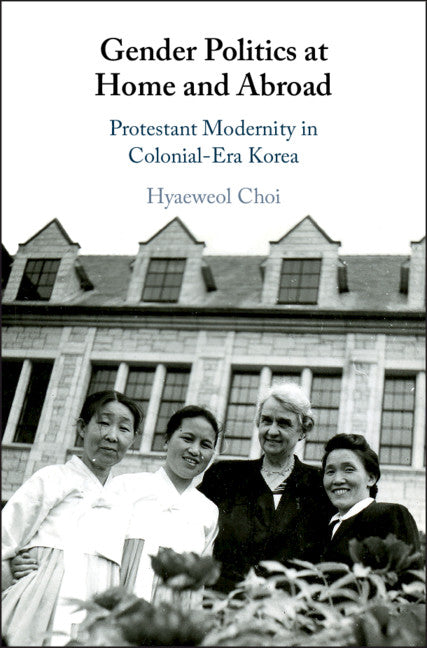Freshly Printed - allow 8 days lead
Couldn't load pickup availability
Gender Politics at Home and Abroad
Protestant Modernity in Colonial-Era Korea
Choi examines how global Christian networks facilitated the flow of ideas, people and material culture, shaping gendered modernity in Korea.
Hyaeweol Choi (Author)
9781108487436, Cambridge University Press
Hardback, published 30 July 2020
320 pages
23.5 x 16 x 2 cm, 0.5 kg
'Readers will benefit greatly from the author's focus on Korean women at the center of their own experiences … Highly recommended.' J. Rogers, Choice
Hyaeweol Choi examines the formation of modern gender relations in Korea from a transnational perspective. Diverging from a conventional understanding of 'secularization' as a defining feature of modernity, Choi argues that Protestant Christianity, introduced to Korea in the late nineteenth century, was crucial in shaping modern gender ideology, reforming domestic practices and claiming new space for women in the public sphere. In Korea, Japanese colonial power - and with it, Japanese representations of modernity - was confronted with the dominant cultural and material power of Europe and the US, which was reflected in Korean attitudes. One of the key agents in conveying ideas of “Western modernity” in Korea was globally connected Christianity, especially US-led Protestant missionary organizations. By placing gender and religion at the center of the analysis, Choi shows that the development of modern gender relations was rooted in the transnational experience of Koreans and not in a simple nexus of the colonizer and the colonized.
Introduction
1. Ideology: 'Wise mother, good wife'
2. Materiality: the experience of modern house and home
3. Crossing: selfhood, nation, and the world
4. Labor: searching for rural modernity
Conclusion.
Subject Areas: Religious groups: social & cultural aspects [JFSR], Gender studies, gender groups [JFSJ], Christianity [HRC], Social & cultural history [HBTB], Asian history [HBJF]


